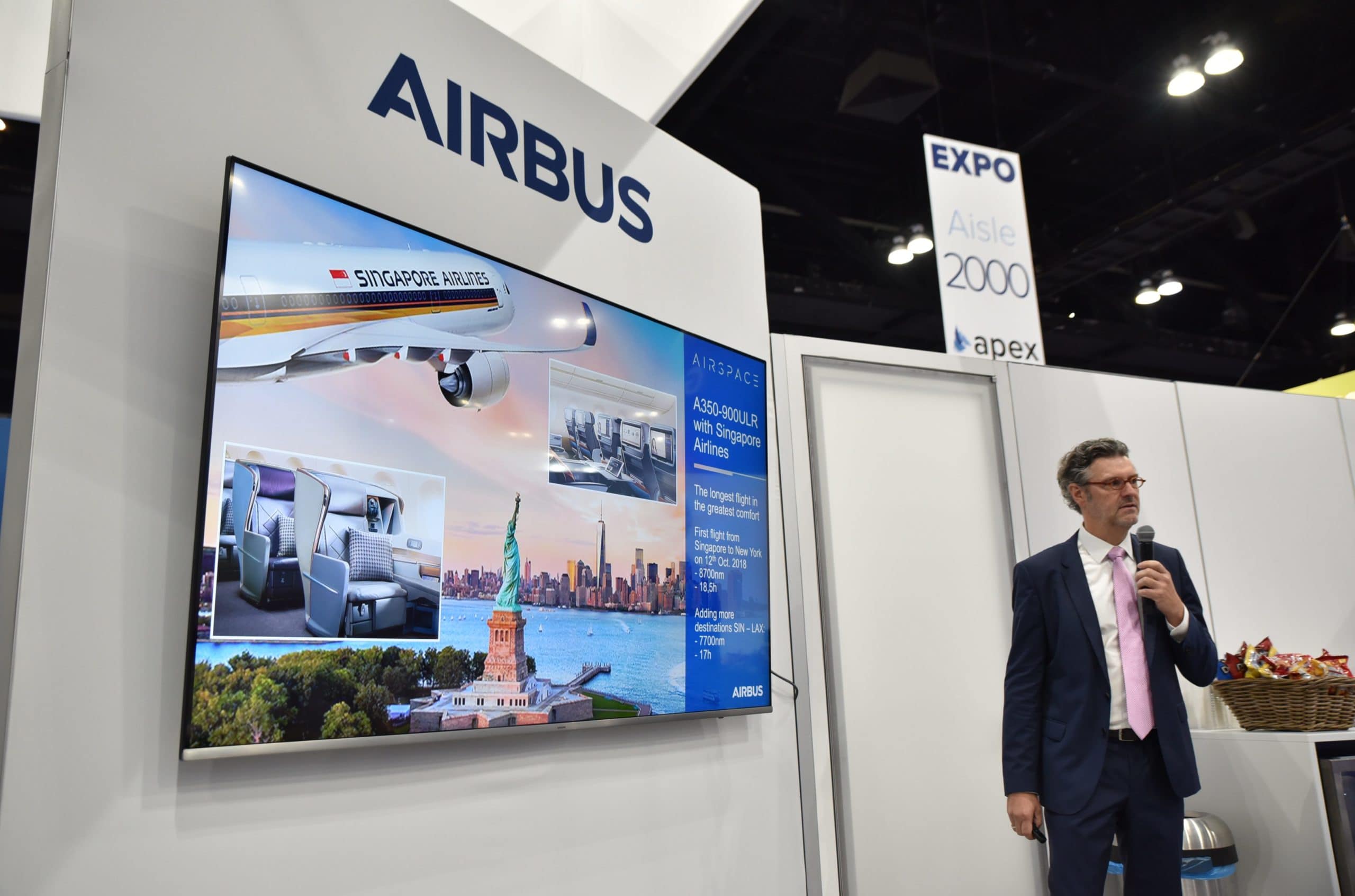[VIDEO] Airbus Begins Testing Tomorrow’s IoT Technologies on Board Flying Lab
Share

Airbus is continuing to make headway with its Airspace Connected Experience project, which is focusing on technology relating to the Internet of Things.
APEX @ is made possible by the support of West Entertainment.
Airbus has started in-flight trials of the Internet of Things (IoT) connected cabin technologies that form part of its Airspace Connected Experience, first revealed at last year’s APEX EXPO. The company’s Airbus Flight Lab is currently on board an A350-900 aircraft based at its Hamburg facility. The OEM claims it is the first manufacturer to undertake flight testing of actual connected cabin innovations.
“We looked at megatrends that will appear in the future, the mobile and IoT revolution where you can control everything in your car and in your home. A lot of similar features will also appear in the aircraft,” said Ingo Wuggetzer, Airbus’ vice-president of Marketing. “We developed the idea together with airlines and identified whether we can connect all these elements to create added value and the flight experience of tomorrow.”
Airbus has installed an initial set of elements in the A350 Flight Lab, including the connected iSeat from Recaro, the Connected Galley from gategroup, a remote wireless cabin management system, a large OLED cabin display and the first component of Airbus’ new “IoT backbone,” which includes an open software platform. Airbus confirmed that these are all being tested in flight, in addition to other undisclosed technologies that will be revealed in the future.
“If you have a connected open ecosystem, it makes it easier for others to come up with great ideas” – Into Wuggetzer, Airbus.
The connected cabin ecosystem will also make use of data to deliver personalized services to passengers. “You could order your meal at home or at the airport and it will be delivered on board and you will get what you want. At the moment, if you’re sitting in the last 10 rows, you don’t get what you want,” Wuggetzer said.
According to Wuggetzer, if airlines know what passengers were eating during their last flight, what they bought in the duty free and what movies they were watching, then they will be able to boost ancillary revenue by offering advertising and services that create value to passengers.
Airbus is also testing smart cameras situated outside lavatories to measure passenger wait times. To address privacy concerns, Wuggetzer said the cameras blur out passengers’ faces.
“If you have a connected open ecosystem, it makes it easier for others to come up with great ideas,” Wuggetzer explained.



